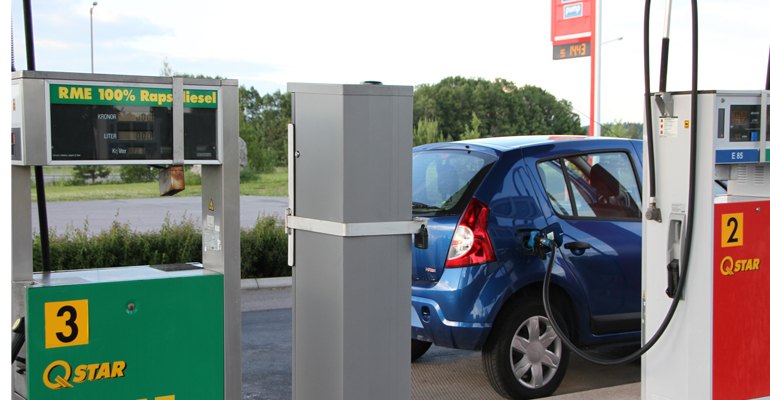Failure to account for non-fuel related benefits from biofuel production leads to an underestimation of the greenhouse gas (GHG) emission reduction potential for biofuels when replacing fossil fuels due to the many valuable by-products and/or co-produced utilities with high fossil replacement potential. With the current Swedish biofuel production portfolio, consideration of non-fuel related benefits could lead to 50 percent greater GHG emission savings, a recently concluded project finds.
In 2014, the Swedish Energy Agency reported a greenhouse gas (GHG) emissions reduction of 1.95 million tonnes of carbon dioxide equivalent (CO2-eq) due to the replacement of fossil fuels with biofuels. However, a narrow focus on CO2 fails to capture the additional benefits biofuel production may have according to a recently concluded Swedish research project.

Studies often indicate that agricultural and biomass production systems have the potential to provide considerable socio-economic benefits, but that the level of detail and clarity regarding benefits provided by expanded biomass production and biofuel process industries are insufficient.
Furthermore, the significant focus directed toward investigating the life cycle impacts and negative socio-economic effects of biofuel production tend to exclude, miss, or ignore additional benefits from the biofuel industry accrued in both environmental and socio-economic spheres.
This was the starting point for a recently completed project within the Swedish Knowledge Centre for Renewable Transportation Fuels (f3) and Swedish Energy Agency collaborative research programme Renewable transportation fuels and systems (Förnybara drivmedel och system).
Factoring non-fuel GHG emission benefits
Project leader Michael Martin from IVL Swedish Environmental Research Institute has worked together with participants from f3 partners Bio4Energy/Luleå University of Technology and Lund University to study the additional socio-economic benefits that also come from replacing fossil fuels with biofuels.
The project Environmental and socio-economic benefits from Swedish biofuel production, has quantified and analyzed environmental benefits, and reviewed and documented socio-economic benefits of biofuel production in Sweden.
The results from the environmental analysis provide evidence that failure to account for non-fuel related benefits from biofuel production leads to an underestimation of the potential for biofuels to contribute to GHG emission reductions when replacing fossil fuels due to the many valuable by-products and/or co-produced utilities with high fossil replacement potential.
Prime examples of such being by-products from grain-based ethanol production, digestate from biogas production, and utility integration of lignocellulosic fuel production such as fuels derived from biomass gasification.

With the current Swedish biofuel production portfolio, consideration of non-fuel related benefits could lead to 50 percent greater GHG emission savings, compared to when only considering the replaced fossil fuels. In the considered future fuel production mix scenarios the corresponding number could almost reach 90 percent, due to significantly increasing shares of biogas and lignocellulosic biofuels.
The results from the project have been submitted in two scientific articles that are to be published. An additional supporting report that elaborates on the socio-economic benefits through a screening and review of job creation and assessment methods for other benefits is also under way. In the meanwhile, an extended summary report is available.
Facts
About f3
The Swedish Knowledge Centre for Renewable Transportation Fuels (f3 -Fossil Free Fuels) is network organisation that:
- provides a broad, scientifically based and trustworthy source of knowledge for industry, governments and public authorities in their strategic planning of short-term actions to reach long-term visions;
- carries through system oriented research related to the entire renewable fuels value chain, both in the shape of syntheses of current research and as supplementing studies
- acts as a national platform stimulating interaction between large and relevant R&I programs, towards Horizon 2020 and for other international collaborative processes
f3 partners include Sweden’s most active universities and research institutes within the field, as well as a broad range of industry companies with high relevance. f3 has no political agenda and does not conduct lobbying activities for specific fuels or systems, nor for the f3 partners’ respective areas of interest.
The f3 centre is financed jointly by the centre partners, the Swedish Energy Agency and the region of Västra Götaland. f3 also receives funding from Vinnova (Sweden’s innovation agency) as a Swedish advocacy platform towards Horizon 2020. Chalmers Industriteknik (CIT) functions as the host of the f3 organization and the centre’s secretariat. f3 is a partner of the upcoming Advanced Biofuels Conference in Gothenburg, Sweden 17-19 May.


